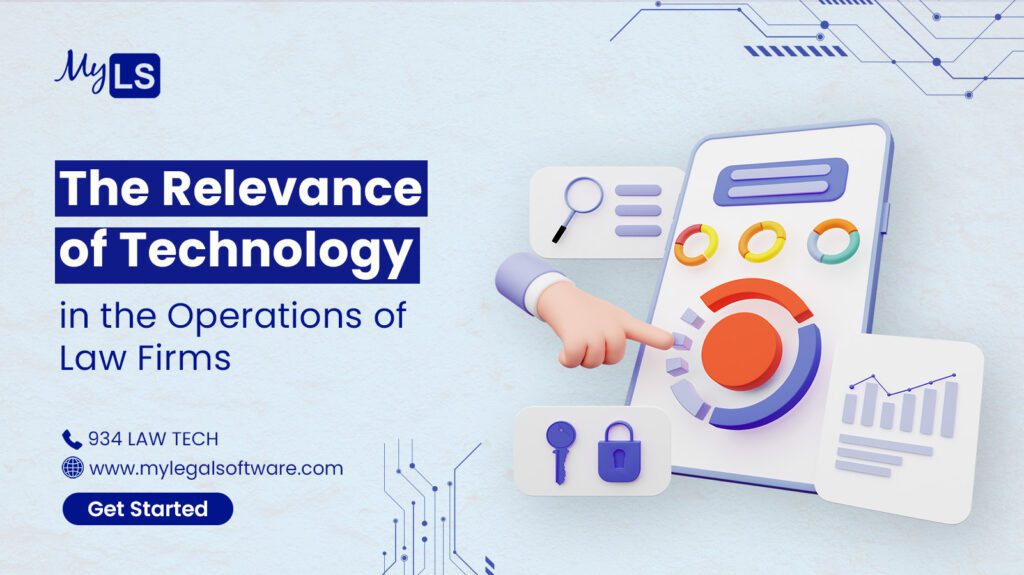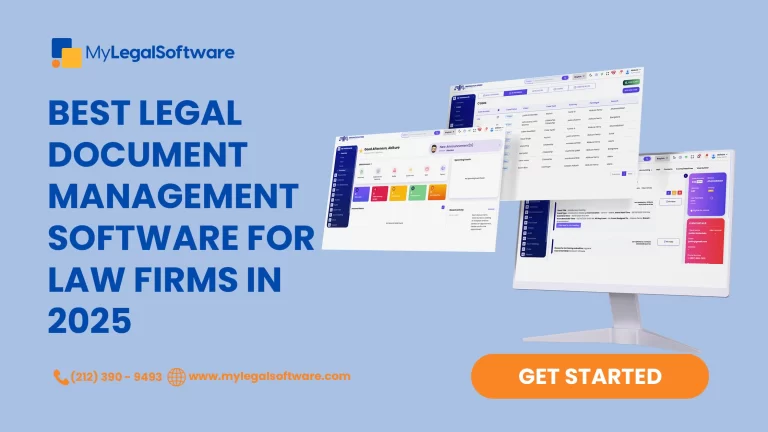Legal technology has become an integral part of the operations of law firms, revolutionizing case management and enhancing client engagement and service. Embracing tech tools and staying informed about emerging legal tech trends is critical for law firms aiming to thrive in the modern legal industry.
This article explores the relevance of tech in the daily operations of law firms and how it has become an indispensable asset for legal professionals.
The Definition of Legal Tech
Legal technology, commonly known as legal tech, encompasses a range of technologies and software that aim to improve the practice of law and provide access to legal services. It includes tools for automating processes, conducting legal research, managing documents, and enhancing communication between lawyers and clients.
The Role of Legal Tech in Case Management
One of the key areas where legal tech has made a significant impact is in case management. Traditionally, law firms relied on manual processes for handling cases, which were time-consuming and prone to errors. However, with the advent of legal tech, lawyers now have access to advanced software and tools that automate various aspects of case management.
Automation of Processes
Legal tech solutions have automated many repetitive and time-consuming tasks involved in case management. For example, document analysis and drafting can now be done efficiently by machines, saving lawyers valuable time and effort. Additionally, legal tech tools can track deadlines, manage calendars, and generate automated reminders, ensuring that important tasks are not overlooked.
Streamlined Communication and Collaboration
Effective communication and collaboration are crucial in the legal profession. Legal tech platforms provide lawyers with secure and efficient ways to communicate with clients, co-counsel, and other stakeholders. Through features like secure messaging, document sharing, and virtual meeting capabilities, legal tech promotes seamless collaboration and enhances client engagement.
Data Management and Analytics
Legal tech tools also enable law firms to effectively manage and analyze large volumes of data. From organizing case-related documents to extracting relevant information, legal tech platforms offer advanced data management capabilities. These tools can also leverage data analytics to provide valuable insights for case strategy, predicting outcomes, and identifying trends.
The Benefits of Legal Tech in Client Engagement and Service
Enhanced Access to Legal Services
One of the primary advantages of legal tech is its ability to improve access to legal services. Many individuals and businesses face barriers when seeking legal assistance, such as high costs and geographical limitations. Legal tech platforms, including online legal marketplaces and virtual law firms, bridge this gap by providing affordable and convenient access to legal expertise.
Transparency and Accountability
Legal tech promotes transparency and accountability in the legal profession. Clients can easily track the progress of their cases, access relevant documents, and receive real-time updates through client portals and mobile apps. This level of transparency fosters trust between lawyers and clients and ensures that clients are well-informed throughout the legal process.
Efficient Legal Research
Legal research is a critical component of legal practice, and legal tech has significantly enhanced the efficiency and effectiveness of this process. Online legal research platforms provide lawyers with access to vast databases of legal information, including case law, statutes, and legal commentary. Advanced search functionalities and AI-powered algorithms make it easier for lawyers to find relevant legal precedents and analyze complex legal issues.
Improved Document Management
Law firms deal with a large volume of documents, including contracts, pleadings, and evidence. Legal tech solutions offer sophisticated document management features, such as cloud storage, version control, and collaboration tools. These features streamline document organization, retrieval, and sharing, ensuring that lawyers can access the right documents at the right time.
Enhanced Security and Privacy
Protecting client data and maintaining confidentiality are critical responsibilities for law firms. Legal tech platforms employ robust security measures, such as encryption and multi-factor authentication, to safeguard sensitive information. Additionally, cloud-based storage solutions provide secure access to documents while maintaining data integrity and compliance with privacy regulations.
The Future of Legal Tech
As technology continues to advance, the future of legal tech looks promising. Here are some key trends and developments to watch out for:
Artificial Intelligence and Machine Learning
Artificial intelligence (AI) and machine learning (ML) are poised to disrupt the legal industry further. AI-powered legal research tools can analyze vast amounts of legal data and provide relevant insights to lawyers. ML algorithms can predict case outcomes based on historical data, helping lawyers make informed decisions. Moreover, AI-powered chatbots and virtual assistants can enhance client interactions and provide basic legal guidance.
Blockchain Technology
Blockchain technology has the potential to revolutionize areas such as contract management, intellectual property rights, and legal transactions. Smart contracts, powered by blockchain, can automate contract execution, reduce the need for intermediaries, and ensure transparency and security. Additionally, blockchain-based systems can streamline the management of intellectual property rights, creating more efficient and secure processes.
Cloud Computing and Remote Work
Cloud computing has already transformed the way law firms manage their data and collaborate. Cloud-based platforms enable lawyers to access case files and documents from anywhere, facilitating remote work and increasing flexibility. With the COVID-19 pandemic accelerating the adoption of remote work, cloud computing will continue to play a vital role in the future of legal tech.
Data Analytics and Predictive Analytics
Data analytics will continue to play a crucial role in legal tech, enabling lawyers to extract valuable insights from vast amounts of data. Predictive analytics, powered by ML algorithms, can help lawyers assess the potential outcomes of cases, identify risks, and make data-driven decisions. These technologies can enhance case strategy, improve litigation outcomes, and optimize resource allocation.
Embracing Legal Technology
As technology continues to advance, the future of legal tech holds even more exciting possibilities for the legal profession. Embracing legal tech is no longer an option but a necessity for law firms looking to stay competitive and provide exceptional legal services in a rapidly evolving digital world.
Author:
N.M. Gehi, Esq
Legal Tech Influencer and Founder of MYLS
Mr. Gehi is a legal tech visionary with a passion for leveraging technology to empower legal professionals and transform the practice of law. As the founder of MYLS, he continues to drive innovation in the legal tech space, helping law firms and attorneys harness the power of technology for greater success.








